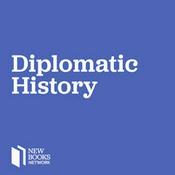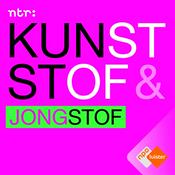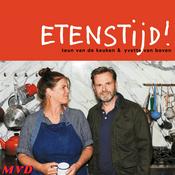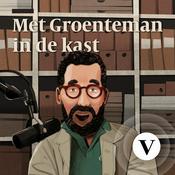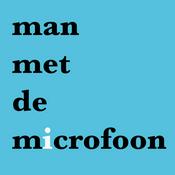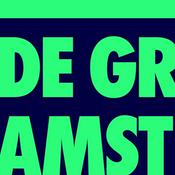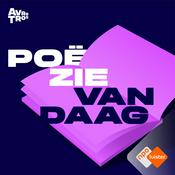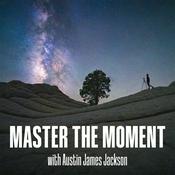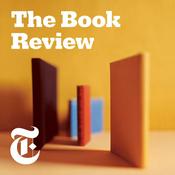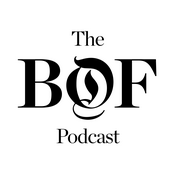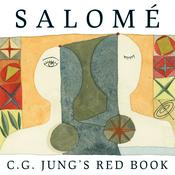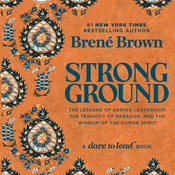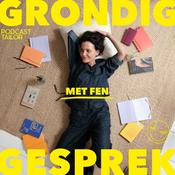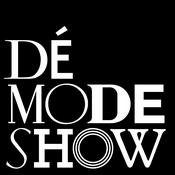1068 afleveringen
Marc Mierowsky, "A Spy Amongst Us: Daniel Defoe's Secret Service and the Plot to End Scottish Independence" (Yale UP, 2026)
10-2-2026 | 57 Min.In 1706, Edinburgh was on the brink of a popular uprising. Men and women took to the streets to protest the planned union with England, fearing the end of Scottish sovereignty. But unbeknownst to the mob, a spy was in their midst—the English writer Daniel Defoe, now bankrupt and thrice pilloried, had turned a government agent.
In A Spy Amongst Us: Daniel Defoe's Secret Service and the Plot to End Scottish Independence (Yale UP, 2026), Dr. Marc Mierowsky tells the dramatic story of Defoe and his fellow spies as they sabotaged the Scottish independence movement from the inside. Together they disseminated propaganda and built a network of operatives from London to the upper Highlands, providing the English government with up-to-the-minute intelligence and monitoring its adversaries’ every move.
Through the lives of Defoe and his ring, their handlers, and opponents, Mierowsky guides us through this shadowy underworld of espionage and propaganda—revealing a disturbing and distinctly modern political campaign.
This interview was conducted by Dr. Miranda Melcher whose book focuses on post-conflict military integration, understanding treaty negotiation and implementation in civil war contexts, with qualitative analysis of the Angolan and Mozambican civil wars. You can find Miranda’s interviews on New Books with Miranda Melcher, wherever you get your podcasts.
Learn more about your ad choices. Visit megaphone.fm/adchoicesFlorian Wagner, "Colonial Internationalism and the Governmentality of Empire, 1893–1982" (Cambridge UP, 2022)
09-2-2026 | 57 Min.Today I talked to Florian Wagner about his new book Colonial Internationalism and the Governmentality of Empire, 1893–1982 (Cambridge UP, 2022).
From its founding in 1893, to its decline in the 1970s, the International Colonial Institute (ICI) was one of the most powerful nongovernmental actors on the colonial scene. Styling itself a reformist institution, the ICI applied the tools of transnational scientific exchange to “rationalize” the practice of colonial rule. As part of this reformist project, members of the ICI mobilized progressive ideas in ways that built broad political consensus across Europe while also furthering inequality, exploitation, and segregation in the Global South, even beyond the end of formal empire. Tracing the long history of the ICI reveals fundamental continuities, argues Florian Wagner, that colonialist narratives of change obscure.
Elisa Prosperetti is an Assistant Professor in International History at the National Institute of Education in Singapore. Her research focuses on the connected histories of education and development in postcolonial West Africa. Contact her at here.
Learn more about your ad choices. Visit megaphone.fm/adchoicesJoshua D. Zimmerman, "Jozef Pilsudski: Founding Father of Modern Poland" (Harvard UP, 2022)
08-2-2026 | 1 u. 37 Min.In the 1920s, Józef Piłsudski was a household name not just in Poland, but across Europe and across the Atlantic Ocean as well. Yet this complex and contradictory figure – a socialist and a nationalist, a clandestine agitator and a legendary military strategist, protector of Jews and other national minorities on Polish soil who was nonetheless often accused of imperialism – has eluded serious biographical treatment in English until now. Yeshiva University professor Joshua D. Zimmerman offers a nuanced, readable, and definitive account of the man who re-founded the independent state of Poland in 1918. Jozef Pilsudski: Founding Father of Modern Poland (Harvard University Press, 2022) could not be more timely, given the lessons to be learned from Piłsudski’s career by today’s opponents of far-right populism in Eastern Europe, and even more urgently – by English-language readers seeking to understand the imperative of preserving an independent Ukrainian state in the face of Russian aggression.
Piotr H. Kosicki is Associate Professor of History at the University of Maryland, College Park. He is the author of Catholics on the Barricades (Yale, 2018) and editor, among others, of Political Exile in the Global Twentieth Century (with Wolfram Kaiser).
Learn more about your ad choices. Visit megaphone.fm/adchoicesJonathan Wilson, "The Power and the Glory: The History of the World Cup" (Bold Type Books, 2025)
08-2-2026 | 56 Min.As the world prepares for the 2026 World Cup, Jonathan Wilson’s new book, The Power and the Glory: The History of the World Cup (Bold Type Books, 2025), presents a new history of what has become the greatest celebration of humanity on earth, and reveals how the World Cup has grown hand in hand with the political, economic, and social forces of our time.
Since 1930, the World Cup has become a truly global obsession. It is the most watched sporting event on the planet, and 211 teams competed to make it into the 2022 tournament. From its inception, it has also been a vehicle for far more than soccer. A tool for self-mythologizing and influence-peddling, The World Cup has played a crucial role in nation-building, and continues to, as countries negotiate their positions in a globalized world.The Power and the Glory is a comprehensive history of the matches and goals, the tales of scandal and triumph, the haggling and skullduggery of the bidding process, and the political and cultural tides behind every tournament. Jonathan Wilson details not merely what happened but why, based on fresh interviews and meticulous research. The book is as much about the legends of the sport, from Pelé to Messi, as it is about the nations that made them, from Mussolini’s Italy to partitioned Germany to controversy-ridden Qatar.Brimming with politics, heart, and drama, on and off the pitch, The Power and the Glory is the definitive story of the greatest cultural event of our time.
Dr. Andrew O. Pace is a historian of the US in the world who specializes in the fog of war. He is currently a DPAA Research Partner Fellow at the University of Southern Mississippi and a co-host of the Diplomatic History Channel on the New Books Network. He is also working on his first book which examines why the United States pursued victory at practically all costs during World War II. He can be reached at [email protected] or via his website here. Andrew is not an employee of DPAA, he supports DPAA through a partnership. The views presented are those of the author and do not necessarily represent the views of DPAA, DoD or its components.
Learn more about your ad choices. Visit megaphone.fm/adchoicesGregory T. Chin and Kevin P. Gallagher, "China and the Global Economic Order" (Cambridge UP, 2025)
02-2-2026 | 1 u. 6 Min.China and the Global Economic Order (Cambridge University Press, 2026) examines China's evolving relations with the Bretton Woods institutions (BWIs), specifically the International Monetary Fund and the World Bank Group from the 1980s through 2025. Using a combination of new qualitative findings and quantitative datasets, the authors observe that China has taken an evolving approach to the BWIs in order to achieve its multiple agendas, acting largely as a 'rule-taker' during its first two decades as a member, but, over time, also becoming a 'rule-shaker' inside the BWIs, and ultimately a new 'rule-maker' outside of the BWIs. The analysis highlights China's exercise of 'two-way countervailing power' with one foot inside the BWIs, and another outside, and pushing for changes in both directions. China's interventions have resulted in BWs reforms and the gradual transformation of the global order, while also generating counter-reactions especially from the United States.
Gregory Chin is an Associate Professor of Political Economy in the Department of Politics, and Faculty of Graduate Studies at York University (Canada), with a focus on the political economy of international money and development finance, China, Asia, the BRICS, and global governance.
Nomeh Anthony Kanayo, Ph.D. Candidate in International Relations at Florida International University, with research interest in Africa's diaspora relations, African-China relations, great power rivalry and IR theories.
Check out my new article https://doi.org/10.1016/j.sciaf.2025.e02699
Learn more about your ad choices. Visit megaphone.fm/adchoices
Meer Kunst podcasts
Trending Kunst -podcasts
Over New Books in Diplomatic History
This podcast is a channel on the New Books Network. The New Books Network is an academic audio library dedicated to public education. In each episode you will hear scholars discuss their recently published research with another expert in their field.
Discover our 150+ channels and browse our 28,000+ episodes on our website: newbooksnetwork.com
Subscribe to our free weekly Substack newsletter to get informative, engaging content straight to your inbox: https://newbooksnetwork.substack.com/
Follow us on Instagram and Bluesky to learn about more our latest interviews: @newbooksnetwork
Podcast websiteLuister naar New Books in Diplomatic History, Fashion Neurosis with Bella Freud en vele andere podcasts van over de hele wereld met de radio.net-app
Ontvang de gratis radio.net app
- Zenders en podcasts om te bookmarken
- Streamen via Wi-Fi of Bluetooth
- Ondersteunt Carplay & Android Auto
- Veel andere app-functies
Ontvang de gratis radio.net app
- Zenders en podcasts om te bookmarken
- Streamen via Wi-Fi of Bluetooth
- Ondersteunt Carplay & Android Auto
- Veel andere app-functies

New Books in Diplomatic History
Scan de code,
download de app,
luisteren.
download de app,
luisteren.
